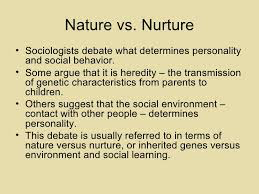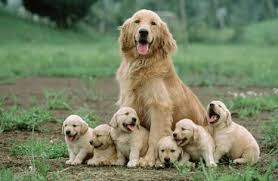

Are dogs pack animals with a set of instinctual drives hardwired into their brain that totally dictate behavior? Are dogs furry humans able to understand and evaluate situations based on thought and feeling? These are issues that people debate, quote studies and point out antidotal evidence to support their own theories and beliefs on the subject. The debate has been going on for centuries.
We know that the modern day domestic dog descended from his canine ancestors, whether that be canis lupus originally or the various subspecies which humans nurtured in order to achieve the various breeds we see today. When discussing what makes canis lupus familiaris tick or to what various behaviors can be attributed, there is a lot of misinformation floating around. Even when one considers the discussion about dogs being pack animals and how wolves interact with each other, much of the information is based on studies done decades ago which have been proven wrong yet it still lingers. Whie in some ways this information can be useful when put into context, it can also be an excuse to attribute poor behavior to things like “dominance” or “alphaness” or even aggression, three hot topics for any dog trainer. In actual fact the poor behavior is the result of issues such as improper socialization, poor communication with the owners and training deficits.
On the flip side of the coin, there is another school which seems to view our canine companions as “fur babies”. These proponents seem to give much support to the idea that dogs do things for reasons that totally make sense if our dogs were humans. Again, this type of thought can be useful however it tends to make a dog’s thought process too complex by attributing a human’s way of thinking to our dogs and it also has a way of handicapping our dogs. Yes, I say handicapping because it does not allow a dog to be a dog. Whether the dog is a tea cup chihuahua or a great dane, there is nothing more pitiful from a trainer’s point of view than an insecure dog whose insecurity is caused by the fact that it really does not know how to be a dog.

People ask me, where I fall in this spectrum. My school background is as a social worker. As a result I tend to take a more eclectic view on behavior whether you are talking people or animals. I try not to speak in absolutes as when you do so, you tend to throw out good tools and useful information which can help in explaining and dealing with behavior. Are dogs pack animals with a set of instincts hardwired into their brains...yep, absolutely. Are these instincts affected and shaped by centuries of living with and working for the human race. Of course they are. I do not believe you can accept one without the other in the same way you can not attribute human behavior totally to nature nor to nurture....one has to have an affect on the other.
So how does one deal with problem behaviors? How does one ensure they raise a well trained balanced and healthy dog. I believe if you take a combination of the two schools of thought above...mash them up...you will have a good basis to start from. From the “nature” school of thought, if we as owners accept that dogs are dogs and we should respect their right to be a dog, respect their “dogginess” if you will and celebrate it for the wonderful gift that it is, I believe that is a good start. What this means is that we should realize our dogs are dogs, they do not think like humans and really do not want to be humans. As somebody who works with problems in the human population every day, I say thank goodness for that. If we actually allow our dogs to be dogs and not think we are doing them a favor by treating them like furry humans, I believe we have the groundwork for a great human dog team. From the nurture side of things, if we accept that most poor behavior that our dog has is actually caused by us humans, by us sending inconsistent messages over time to our dogs, by making excuses for poor behavior, by improperly socializing our dogs, by not confronting problems in the early stages before they become serious issues...by us doing these things, we are actually shaping our dog’s behaviors in a negative way...if we understand and accept this, we would then be well on the road to also being able to turn things around and raise good, solid well balanced dogs.